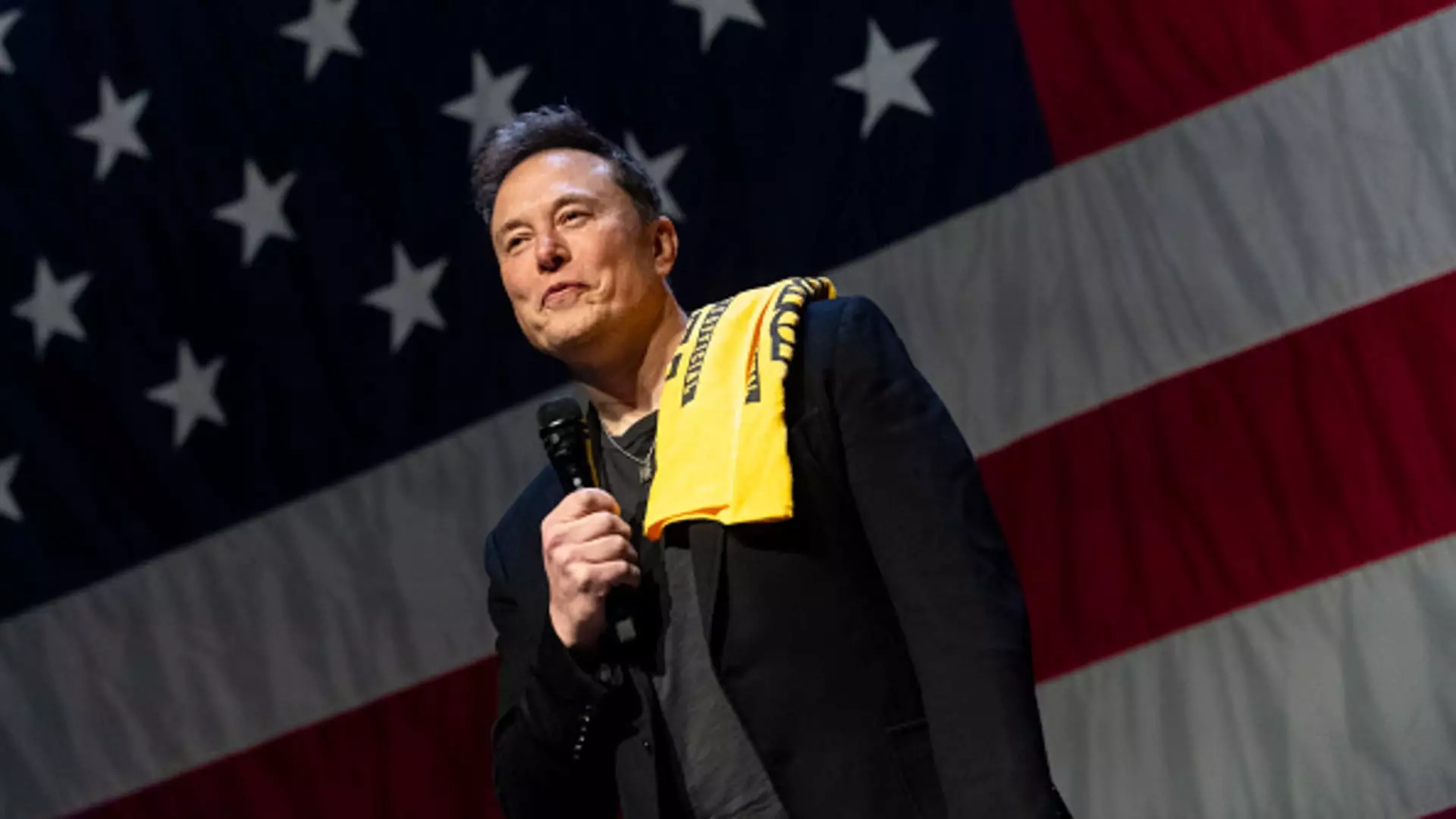The ongoing legal battle ignited by the Philadelphia District Attorney’s office against Elon Musk and his political action committee (PAC) is capturing national attention. The crux of the case centers around the controversial $1 million cash prizes being awarded to voters in key swing states to garner support for political initiatives. While the case is currently set to be heard in federal court, it is important to examine the wider implications this lawsuit holds, not only for electoral integrity but also for the legal boundaries between state and federal jurisdictions.
The Philadelphia District Attorney, Larry Krasner, has initiated legal proceedings to halt Musk’s America PAC from continuing its financial incentivization of voters. Krasner argues that these awards constitute an illegal, unregulated lottery designed to corrupt the electoral process. As the situation unfolds, Krasner’s legal team intends to seek a transfer of the case back to state court from federal proceedings, emphasizing the need for local jurisdictions to maintain control over election laws. “We will pursue the case in federal court but are prepared to remand it back to the state level,” remarked Krasner’s attorney, John Summers.
The legal strategy of Musk’s legal representatives, contrastingly, hinges on the assertion that because the America PAC is registered at the federal level, state regulations do not apply. This raises a crucial question regarding the limitations of state powers in imposing restrictions on federally registered political entities, particularly when the allegations pertain to alleged interference with federal elections.
At the heart of Krasner’s lawsuit lies the argument that Musk’s cash prizes undermine the electoral process by enticing voters in exchange for personal information and political pledges. The claim underscores a troubling phenomenon where financial incentives could distort genuine political engagement. “Musk is lulling citizens into providing personal details for a chance to win, essentially turning the electoral process into a lottery,” Krasner’s suit asserts. This notion of equating electoral participation with gambling poses significant ethical dilemmas about the role of money in politics.
The lawsuit also raises pertinent questions about the potential volatility of political messaging. Given Musk’s overt support for Donald Trump, coupled with America PAC’s described practices, there are fears that such actions may unduly influence voters’ choices in the upcoming election cycle against Kamala Harris. The impact of wealth and celebrity influence in politics has long been a contentious issue and this legal conflict shines a spotlight on the intersections of finance, fame, and electoral integrity.
In an alarming twist, attorneys representing Krasner conveyed that they have experienced significant harassment tied to the lawsuit, including antisemitic attacks against the District Attorney emergent from Musk’s social media followers. Highlighting the seriousness of the situation, these attacks culminated in the sharing of Krasner’s personal address online, prompting calls for heightened security measures during the court proceedings. This added layer of concern raises broader implications about the kind of discourse surrounding public officials and the potential repercussions of the actions taken by high-profile individuals in the political realm.
Interestingly, this case does not exist in a vacuum. The U.S. Department of Justice has issued cautions to America PAC regarding the possibility that these monetary giveaways might infringe upon federal election laws. However, as of now, no formal action has been taken to preemptively block the prizes. This inaction on the part of the federal government juxtaposes the local legal efforts initiated by Krasner, presenting a complex legal landscape where state concerns intersect with federal guidelines.
As this legal saga unfolds, observers must remain vigilant regarding not just the outcomes of this specific case, but the broader ramifications for political campaigning and voter engagement in a rapidly changing electoral landscape. The tension between state authority and federal directives, the ethical concerns surrounding financial incentives in politics, and the threats directed at public officials encapsulate a critical moment in the intersection of law and political practice. The proceedings ahead will surely contribute to ongoing discussions about the integrity of our democratic processes.


Leave a Reply